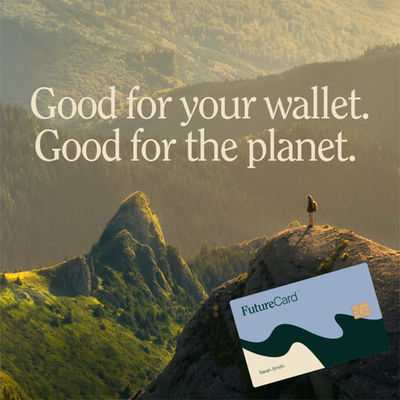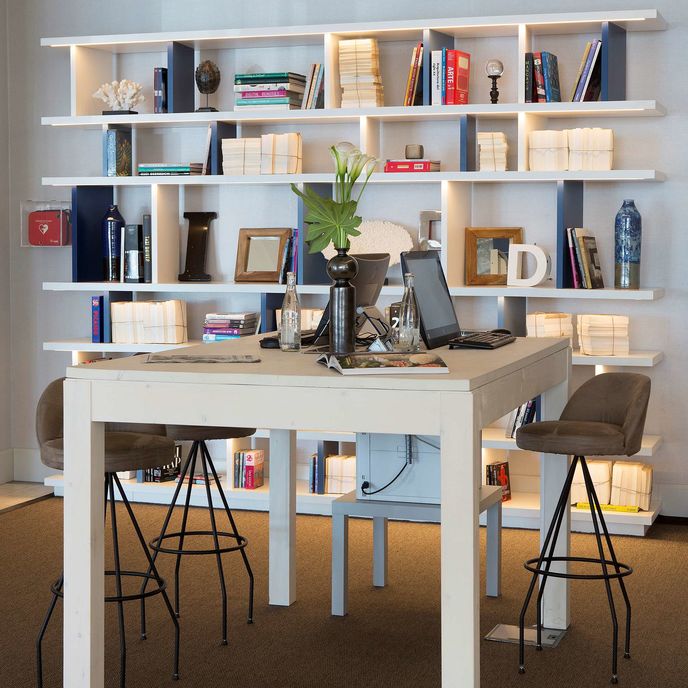Empowering Eco-decisions
2021 has been a pivotal year on our path towards a safer climate. But, as the recent IPCC report reminds us, we are still facing a ‘code red for humanity’ point in history that requires us to act decisively to save the planet
As the COP26 climate summit in Glasgow draws to an end this week, we’re turning our focus to the future of sustainability – sharing the ideas, innovations and actions your brand can take today to become part of an eco-conscious tomorrow.
We’ve reached record numbers of B Corps, more than a third of all investments globally are now sustainable, and sales of eco-friendly goods are higher than ever (sources: Global Sustainable Investment Alliance, New York University).
But sustainability as a one-solution label has been co-opted. Marketers use it to push everything from packaging to social media campaigns, while greenwashing brands still operate unchecked. In short, the term has lost its purpose. ‘I barely even know what the word ‘sustainable’ means any more,’ admits eco-fashion veteran Stella McCartney.
It’s understandable. Sustainability encompasses numerous challenges for both individuals and businesses – as well as countless solutions. The circular economy, regenerative agriculture, localised supply chains and decarbonised diets are just a few innovations that fall under its umbrella. Combine this with the rise of purpose-washing and it’s no wonder people are left confused, overwhelmed and, most worryingly, powerless.
Against the odds, however, a collective sense of optimism is emerging. Ecocide could soon be a prosecutable offence, while the world’s largest corporations are forming landmark environmental, social and corporate governance (ESG) frameworks.
In our new Sustainability Futures 2021 report, we cut through the fog of
confusion and reveal the journey we’re on as citizens and brands, demystifying sustainability with a practical step-by-step toolkit packed with tangible strategic opportunities. Members of LS:N Global get access to the report for free, or you can purchase it in our shop.
DOWNLOAD THE REPORT
Explore some of our latest Sustainability research below from the News section of our trends intelligence platform, LS:N Global.
11 November 2021
Author: The Future Laboratory
Image: Catarina for H&M Role Models
Share
𝕏
Related articles:
What’s next for sustainability? Collective action
It’s time for sustainability to get spiritual
This recycled chair is designed to be returned
Amsterdam – Made using recycled plastic from fishing nets, toothbrushes and industrial waste, the REX chair by Dutch furniture brand Circuform and designer Ineke Hans is intended to be used, returned and taken home by someone else.
The premise of the plastic ‘deposit chair’ is simple. After purchase and use, customers are given a chance to exchange the chair for a partial refund, ensuring that it will be repaired, reused or upcycled to create more chairs. By taking the start and the end of product’s lifecycle into account, the REX chair significantly diminishes its environmental impact. ‘It is a chair that will basically last a lifetime, but the reality is our society doesn't work like that,’ explains Ineke Hans.
By giving customers an option to return objects, Ineke is appealing to Generation Rent – Millennial and Generation Z consumers who use décor and accessories to personalise impermanent abodes. With consumers desiring flexibility and variety when furnishing their homes, new models of ownership that position Furniture as a Service must arise to ensure maximal sustainability.
 Visa FutureCard by Future, US
Visa FutureCard by Future, US
FutureCard saves money while saving the planet
US – Incentivising green spending, FutureCard is the first card that offers 5% cashback on eco-friendly purchases, actively rewarding consumers who purchase used clothing, own an electric car or take the metro, in order to lower the barriers to entry when it comes to climate consciousness.
With 66% of carbon emissions attributed to consumer choices on travel, food and lifestyle, FutureCard has partnered with financial services giant Visa to offer the cashback scheme. What’s more, anyone can apply to receive a FutureCard, no matter what their credit score or salary band.
By encouraging consumers to consider the environmental cost of their purchases, FutureCard is aligning itself with the premise of Sustainable Spending, providing a more ethical banking option for savers. ‘FutureCard will support consumers on their journeys to make sustainable behaviour changes and reward climate choices,’ explains Douglas Sabo, chief sustainability officer at Visa.
Eco-Bot takes aim at climate disinformation
Glasgow – As global leaders convene at COP26 to set new environmental targets, the Eco-Bot project is seeking to expose corporate greenwashing during the landmark summit.
Confronting the swathes of climate misinformation rampant on social media – particularly Facebook, Twitter and Instagram – artists and 'hacktivists' Robert Del Naja and Bill Posters developed the bot to comb the internet for key terms and phrases often used in eco-propaganda. This data is then funnelled into a database moderated by journalists who can flag the misleading content by commenting on posts and turning data into graphic visualisations.
‘We’re talking about three of the world’s largest social media platforms with over four billion users, and none of them have effective policies to limit the harm caused by climate change disinformation or corporate greenwashing,’ explains Posters.
Taking aim at heavy carbon emitters, the project aims to reveal the vested interests of multinational corporations that run advertisements on three social giants. In doing so, the scheme aligns itself with Digital Dialogue initiatives that demystify the often nebulous advertising tactics employed on social media.
Radisson corporate bookings go carbon-negative
Minnesota – As part of its Responsible Business programme, the Radisson Hotel Group is offering carbon-negative meetings and events across 400 hotels in its EMEA portfolio.
Heralding a new era of sustainability for corporate travel, the programme will offset double the CO2 emissions for every business event that takes place at participating hotels free of charge. The group will calculate the carbon cost of each meeting by using the Hotel Carbon Measurement Initiative tool, a methodology that is recognised by the Gold Standard of Verified Carbon Standard (VCS). The programme will initially run between 18 October 2021, and 31 March 2022.
As conferences and trade shows transition online, the pandemic has radically altered the future of business travel. To remain competitive, hospitality companies must provide more than convenient amenities and meeting spaces to lure corporate travellers. By offering carbon-negative packages, the Radisson Hotel Group is adding a business angle to the wider Eco-Tel Evolution.
 Radisson Hotel Group
Radisson Hotel Group
Want to unlock more?
This is a taster of the content we publish for members of LS:N Global
Sign up to our trends intelligence platform LS:N Global and get unlimited access to a hive of insights - from microtrends and macro trends to market reports, daily news, research across eight industry sectors as well as our frequently updated Sustainability series.
You can also explore more of our Sustainability research in our latest report here.
Discover our memberships
Already a member? Click here to login
